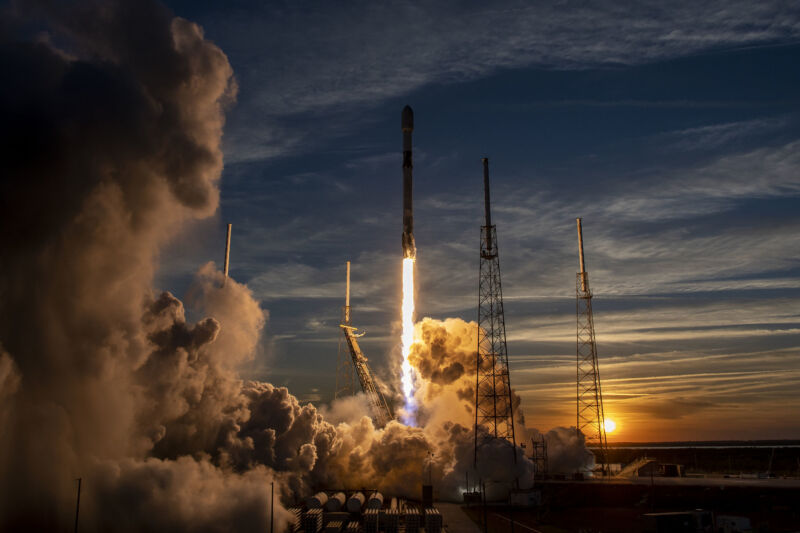
Welcome to Edition 5.28 of the Rocket Report! We have had a big week for news about United Launch Alliance. All three items in the “Heavy Rockets” section concern the company, which may only be two months away from the much-anticipated debut of its Vulcan booster. Let’s go!
As always, we welcome reader submissions, and if you don’t want to miss an issue, please subscribe using the box below (the form will not appear on AMP-enabled versions of the site). Each report will include information on small-, medium-, and heavy-lift rockets as well as a quick look ahead at the next three launches on the calendar.

Rocket Lab may abandon helicopter recoveries. In comments during a February 28 earnings call, Peter Beck, chief executive of Rocket Lab, said the company was weighing recovering stages from the ocean and refurbishing them for launch rather than catching a stage with a helicopter, Space News reports. During a second “catch” attempt last November, Rocket Lab called off the helicopter’s approach because of a momentary loss of telemetry from the booster. The company instead allowed the stage to splash down in the ocean, where a boat recovered it and returned it to Rocket Lab’s facilities.
A happy little accident? … “This turned out to be quite a happy turn of events,” Beck said. “Electron survived an ocean recovery in remarkably good condition, and in a lot of cases its components actually pass re-qualification for flight.” He said the company is planning an ocean recovery on an upcoming flight after incorporating additional waterproofing into the vehicle. “Pending this outcome of testing and analysis of the stage, the mission may move us toward sticking with marine recovery altogether and introduce significant savings to the whole operation,” Beck said. (submitted by EllPeaTea and Ken the Bin)
Blue Origin still investigating New Shepard failure. Nearly six months after an in-flight anomaly on a New Shepard suborbital mission, Blue Origin says it is still investigating the mishap and has no firm schedule for resuming launches, Space News reports. The NS-23 mission was an uncrewed research flight, and the capsule safely escaped and landed under parachutes after the rocket exploded about one minute into the flight.
Back in business when they’re ready … “We are investigating that anomaly now, the cause of it,” Gary Lai, chief architect for New Shepard at Blue Origin, said at a conference on Tuesday. “We will get to the bottom of it. I can’t talk about specific timelines or plans for when we will resolve that situation other than to say that we fully intend to be back in business as soon as we are ready.” (submitted by EllPeaTea)
Astra completes Tropics-1 investigation. In a lengthy update, Astra said a “rigorous” six-month investigation into the failure of its Rocket 3.3 vehicle to deliver two small satellites for NASA into orbit has concluded. “The rocket completed a nominal first stage flight, stage separation, and upper stage ignition,” the company stated. “Shortly after the ignition of the upper stage engine, the upper stage’s fuel consumption rate increased and remained anomalously high for the remainder of the flight. About 250 seconds after upper stage ignition, the stage exhausted its fuel supply with approximately 20 percent of the liquid oxygen still remaining onboard. As a result, the upper stage was only able to obtain about 80 percent of the required orbital velocity.”
So the upper stage and its payloads re-entered the atmosphere … “Our analysis showed that the anomalous fuel consumption during the upper stage flight was due to a combustion chamber wall burn-through that occurred 18 seconds into upper stage flight,” the company said. “Flight data showed that the burn-through was precipitated by a substantial blockage of the fuel injector. The mechanics of combustion and regenerative cooling are complex and this failure did not have an immediately apparent root cause.” The remainder of the report goes into the analysis of this root cause. Astra has since retired Rocket 3.3 in favor of a larger launch vehicle now under development. (submitted by Ken the Bin and EllPeaTea)
Capella announces multi-launch deal with Rocket Lab. On Tuesday, satellite company Capella Space said it had reached an agreement with Rocket Lab for four dedicated launches on an Electron rocket for its Acadia satellites. The four satellites will augment Capella’s synthetic aperture radar imaging capability, which the company says is needed due to increased market demand for its highest-quality SAR data.
One and four make five … These missions, scheduled to launch in quick succession, will follow a pre-existing flight on the Rocket Lab manifest for Capella Space. This “Stronger Together” mission is scheduled to lift off from Launch Complex 2 in Wallops, Virginia, in March 2023. Capella Space is among a growing list of commercial constellation operators who have flown on Electron, including BlackSky Global, Hawkeye 360, Synspective, Planet, Spire, Fleet Space, and more. (submitted by Ken the Bin)
ArianeGroup increases investment in MaiaSpace. The large, institutional European rocket manufacturer founded the MaiaSpace subsidiary in late 2021 with the intention of building a reusable microlauncher, called Maia, that it hoped to debut in 2026. When flown in reusable mode, the rocket is intended to deliver half a ton of cargo into low-Earth orbit. This is one of several nascent efforts in Europe to develop a reusable rocket.
Continuing to grow … According to public filings, European Spaceflight reports that ArianeGroup invested 6 million euro into MaiaSpace in late January. Filings indicate that MaiaSpace issued an additional 1.5 million shares as part of the agreement. This brings the total amount ArianeGroup has invested in the company to 10.9 million euro. The additional funding should facilitate growth. MaiaSpace currently has about 40 employees. (submitted by EllPeaTea)
https://arstechnica.com/?p=1921251

